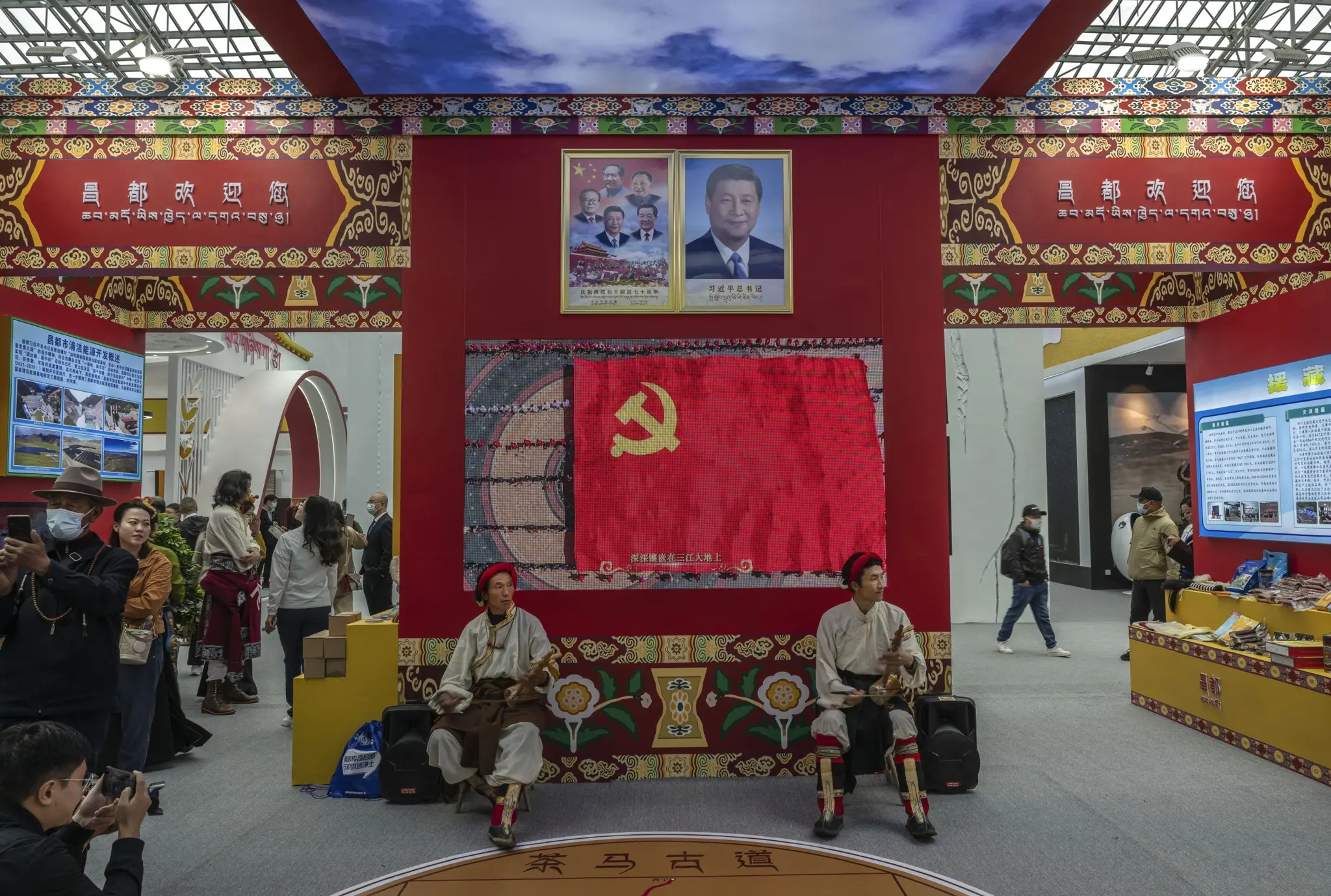Cross-posted from: https://feddit.de/post/5651275
Original link: https://www.newsweek.com/china-changing-tibet-english-name-1843391
The government of China are not good people… is that controversial?
More like CCP is a bunch of goons and criminals - starting with MF Mao, all the way up to Winnie the Xi virus poo.
It’s remarkable that Tibetan culture has been so tenacious that there’s anything left of it today. If the government of 50 years ago had been able to exert the kind of control over its people that they do today, it’s hard to imagine that it wouldn’t have been fully eradicated by now.
We’re talking about the same Tibet where, throughout history, almost every single major government position has been held by a Tibetan, right?
Tibet is the romanized name for the region (based on Latin Tibetum). Tibetans call the Tibetan plateau “Bö” and Central Tibet “Ü-Tsang.”
The original Tibetan Empire (circa 600-800 or something) stretched across the regions of Amdo (modern-day Qinghai), Ü-Tsang (modern-day Tibet Autonomous Region), and Khan (split between TAR and Sichuan). Xizang is a more or less direct transliteration of Ü-Tsang, the territory that makes up the vast majority of the modern-day TAR.
Tibet refers to the entire plateau (also referred to as the Qinghai-Xizang plateau or the Himalayan Plateau) and Xizang refers to the territory made up by the TAR. Xizang has, for as long as I can remember, been the Chinese name for the TAR.
This is manufactured outrage with a clickbait title… About what can be expected from Newsweek.
Edit: for some additional context, China is usually pretty good about keeping local names. See: Ürümqi (Wulumuqi) from the name of Dzungar village there, Kashgar (Kashigaer/Kashi) which has had the same name for millennia and Harbin (Haerbin) from the name of the Manchu village there (among others). Understandably, because Hui and Uyghurs still live in Urumqi and Kashgar, Manchu still live in Harbin, and Tibetans still live in Xizang.
It really helps if you read the article before posting.
Xizang is as much a “Chinese word” as Tsawwassen or Denali is an “English word.” It’s literally a direct phonetic transliteration of the Tibetan name used to describe the land occupied by the TAR.
@zerfuffle transliterations still belong to the transliterating language, eg “Bombay” or “Peking” may not sound English but they are.
It’s unclear from the article what the Tibetan government-in-exile spokesperson would like it to be called.
The god king of a ethnostate with enshrined caste system and slavery? I don’t really care what he thinks.
The spokesperson is hardly a god king.
Tenzin Lekshay, a spokesperson for the Central Tibetan Administration, the Tibetan government-in-exile, said of Beijing’s report.
Ah, so he’s not the god king, just the representative of the god king in absentia, thanks for clarifying that for me. Doesn’t change that I don’t respect anyone who represents or is integrated into a caste-based ethnostate, but it’s good information nonetheless.
Sure, I’m not asking you to respect anything in particular.
The only placenames mentioned in the article are Chinese or English.
Got me wondering what the actual Tibetans would call it (both those inside Tibet and those outside it).
That’s fair, but I think it loses the distinction between different transliteration strategies. For example, phonetic transliteration preserves far more of the original language than other methods. Transliteration is a necessary component of language: most common languages lack glottal stops and clicks, but it’s still important to be able to refer to places that are named with glottal stops and clicks.
In that regard, the TAR has always been referred to as Xizang in Chinese because the TAR covers the Ü-Tsang region. The lands of greater Tibet from the peak of the Tibetan Empire are now parts of Qinghai, Sichuan, Arunachal Pradesh, Sikkim, Kashmir. The unified region of greater Tibet has, in recent history, always been དབུས (Ü) and གཙང་ (Tsang). This is pronounced ue-tsang according to Tibetan Pinyin (phonetic transcription) and Xizang according to transliteration - running through the possibilities, I’m struggling to find an exonym in Mandarin that would be closer in pronunciation.
The traditional name of the region is བོད་ (Bhö). The name Tibet is itself an import from the English. Given the degree of funding the Tibetan government-in-exile receives from the US (an English-speaking country), I’d suggest that the Tibetan government-in-exile has a strong financial incentive for maintaining English…
@zerfuffle the exiles seek the political goodwill of other nations, so presumably they also have a strong incentive to be intelligible to people in those nations. Would be interesting to know if they call it Bhota when they are in India.
When I am fundraising I use names people recognise.
Absolutely, there’s a good point.
Doesn’t change the fact that ethnic Tibet and the TAR are not necessarily the same territorial entity. Tibetans make up a significant proportion of the population of Qinghai, for example.
Hey y’all! This thread has sparked a lot of discussion and it is obviously a very tense topic being discussed at a tense time in the world. With the way the thread has been going, the mod team doesn’t feel we can moderate this thread thoroughly enough to make it follow our rules, so I am going to lock it.





